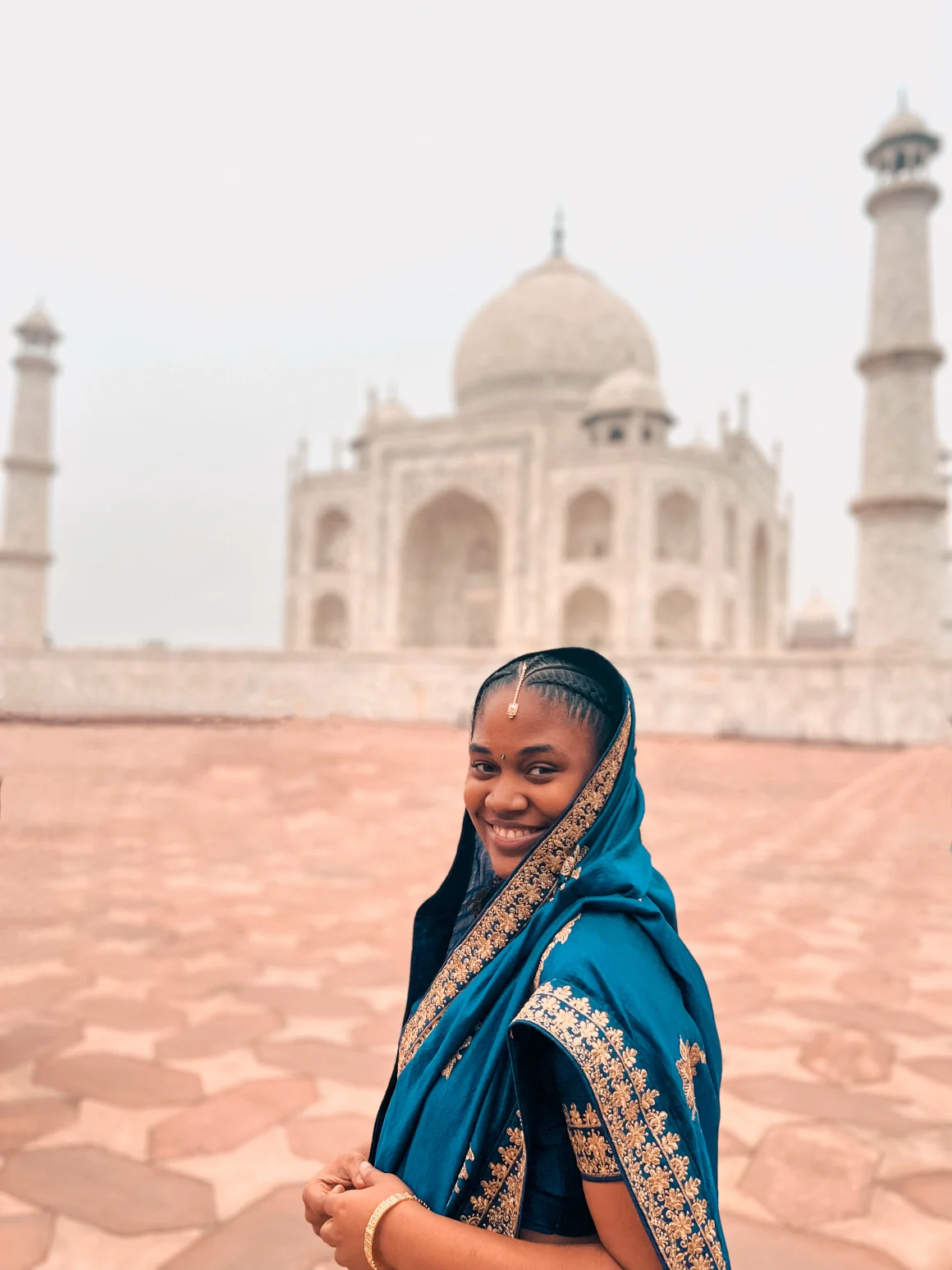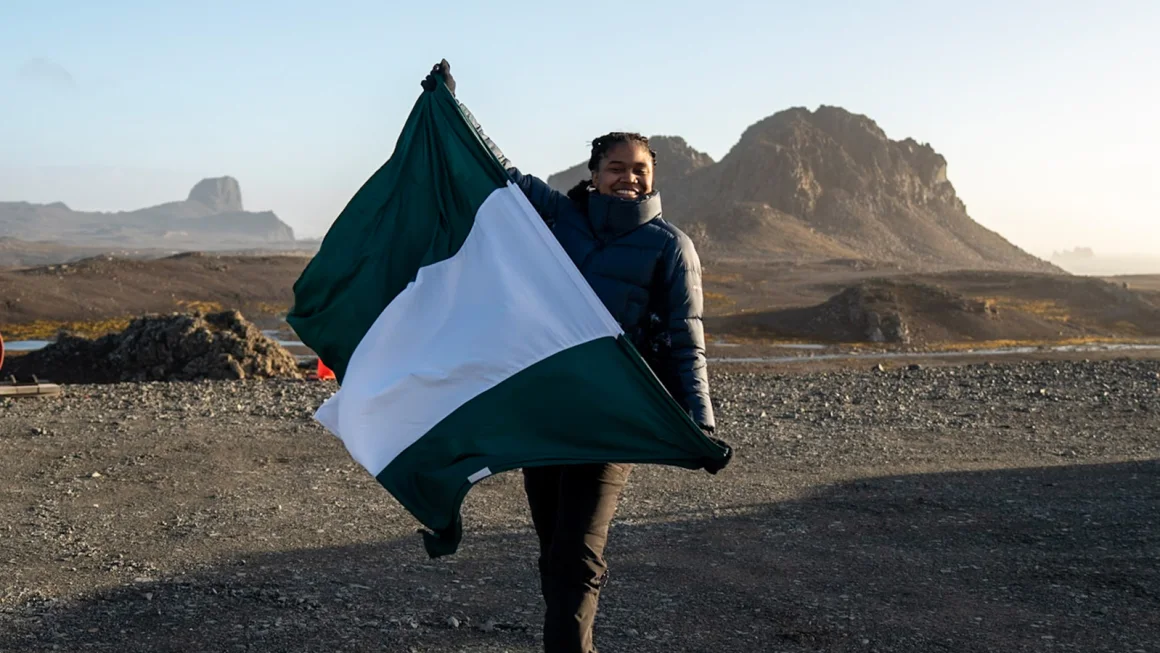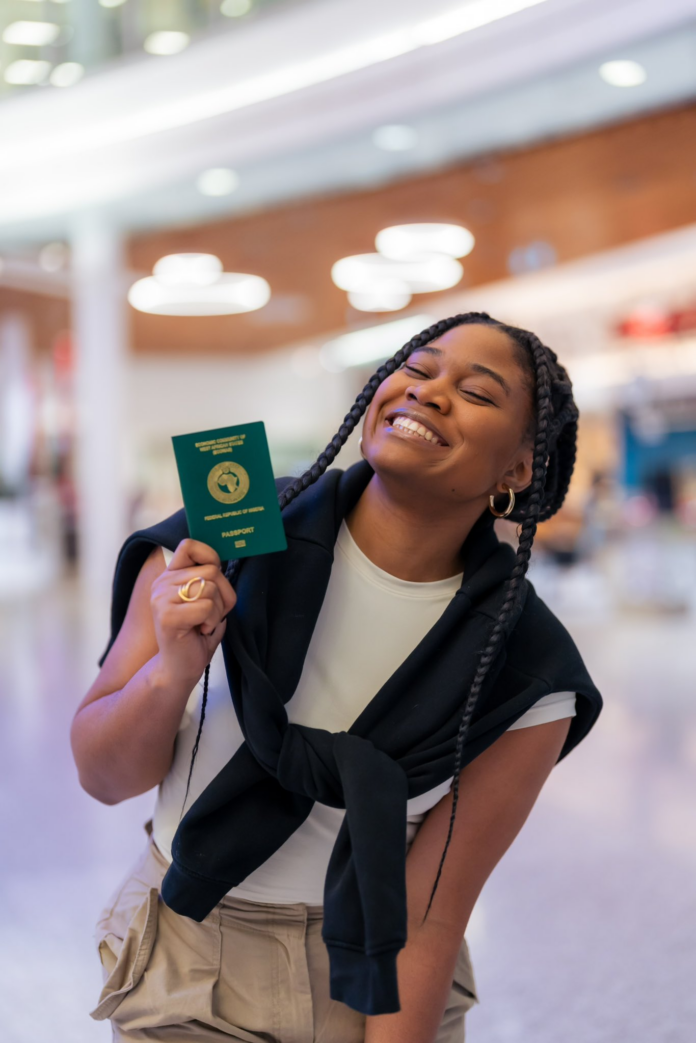Alma Asinobi’s mission to break the world record for the fastest time to visit every continent came to an unsuccessful conclusion at the end of March. But she succeeded in calling attention to the issue she aimed to highlight through the trip: just how hard it is to travel with certain passports.
The 26-year-old Nigerian travel content creator was attempting to beat the current record of 64 hours, held by an American traveler who broke the record in February 2025. When she was initially planning her attempt, the time to beat was 73 hours. She completed the trip in 71 hours and 26 minutes, after flight delays and visa issues derailed her journey.
Asinobi says she wanted to spotlight the issue of “passport privilege.” The Nigerian passport is 92nd on a list of 102 on the Henley Passport Index, a ranking of all the world’s passports according to the number of destinations their holders can access without a prior visa.

During the journey, she says there were “access and options” denied her, and extra checks she was subjected to because of her “low-mobility” passport. And so despite traveling from Antarctica to South America, to North America then Europe, Africa and Asia within the space of a few days, bureaucracy was one headwind she could not overcome.
How the other half travel
The vlogger took her first international trip to Benin, West Africa, in early 2020, a trip she said made her curious “to see what else was out there.” Since then, she has visited about 35 countries, including her recent record attempt.
While documenting her travels, Asinobi says she noticed that influencers focused more on the destinations, and not their efforts to get there. She experienced lengthy, expensive and difficult visa processes and decided to create social media content catering to fellow low-mobility passport holders. In 2024, after applying for a visa to a European country three times before getting approved, she decided it was an issue worth taking to the global stage.

“This is something that … more than half of the world population actually experience,” she said. “They don’t have passport privilege. But we don’t talk about this enough. I just thought … what better way to talk about it than to show the world how tough it is to travel with a passport like mine?”
But, she added, it goes beyond traveling for pleasure. “There’s so much at stake,” she said. “People have missed opportunities to go abroad for meetings, for conferences … I know of someone who lost his mom because they couldn’t get her visa to a (different) country in time for her to get surgery done. That is a life-changing event.”
Before beginning the journey, Asinobi drew up contingency plans in case of delays or missed connections, but days before setting out, she says one country on her route didn’t give her a visa, which meant fewer options if anything went wrong along the way.
She began her record attempt from Antarctica on March 19, and then flew to Chile, and on to Punta Cana in the Dominican Republic, where her flight to Paris was cancelled due to the closure of the UK’s Heathrow Airport after a fire at a nearby substation. That led to a two-hour delay and reroute to Spain, where she missed her connecting flight and instead flew to Egypt. She the flew on to Dubai, where she says she wasn’t allowed to board for Perth, Australia, after being told at the gate that the authorities needed to re-confirm her visa.
“This is the issue that we’re trying to highlight” she told CNN at her homecoming event in Lagos, Nigeria. “I stood there and watched everyone board that flight … I was there until I saw them shut the flight and I saw the flight actually take off. It was very heartbreaking.”
Despite knowing she couldn’t break the record, after receiving confirmation that her visa was valid, Asinobi took the next available flight to Australia — choosing Sydney to complete the trip, saying the most important thing is that she chose to finish.
She says the process taught her the importance of “Surrendering to faith and … to the unpredictability of things and just embracing the uncertainties.”
Raising awareness around passport privilege was her primary goal, but Asinobi was also attempting to gain another world record: most signatures on a single piece of travel memorabilia — the Nigerian flag she took with her on the journey. Asinobi says she got over 600 signatures on the flag, and once certified, she will be an official Guinness World Record holder.
She says she intends to continue having conversations about passport privilege and inequality “with the people who are the biggest stakeholders in this issue: the government,” citing a need for better diplomatic relations so people from developing countries don’t miss out on career and educational opportunities.
CNN





